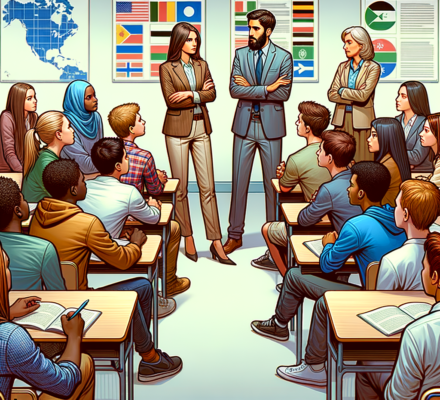Factors Contributing to Decline in Civility
Recently, a series of unfortunate social, political, economic, and technological occurrences have seriously degraded respectful communication in public and private interactions and conversations. Factors contributing to this decline in civil discourse include the lack of civility in political debates, the emotional toll of COVID-19-induced isolation, and the media’s sensationalized and politically partisan content. Additionally, the negative consequences of an economic downturn and the escalation of large-scale conflicts worldwide have intensified feelings of hopelessness and dissatisfaction among many young people.
Challenges Faced by Young People
The economic struggles facing many, including the middle class, have created uncertainty for young people over their future. Issues such as job losses, financial instability, and seemingly fewer possibilities for economic advancement (compared with their parents) have compounded these challenges.
Global Conflict and Frustration
Furthermore, the global landscape, increasingly characterized by conflicts and large-scale wars, has fueled a rising sense of frustration and, in some instances, a feeling of helplessness. Indeed, the relentless stream of troubling news about violence, unrest, and geopolitical tensions has contributed to a sense of powerlessness and disillusionment.
Urgency to Address Decline in Civility
In this tumultuous environment, the urgency to address the decline in civility and respect for divergent opinions and ideas becomes even more critical. The poisonous nature of political debates, exacerbated by COVID isolation, media sensationalism, economic uncertainty, and global unrest, has created a difficult atmosphere for constructive discussions.
Role of Educators in Promoting Civility
Educators can help young people navigate these challenges by teaching them how to engage in civil dialogues and respectfully resolve disagreements. In our classrooms, we can empower young individuals to communicate effectively, actively listen, and partake in meaningful conversations that foster understanding and cooperation by cultivating a culture rooted in respect, empathy, and receptiveness.
Importance of Emotional Intelligence in Education
One aspect of our education system that needs to change is teaching children and adolescents how emotions and past experiences influence our ability to think clearly and objectively. Considering the important role of emotions in communicating with others can also help build empathy in young people. By providing a deeper comprehension of oneself and others, students can learn to regulate their emotions more effectively, thereby maintaining clarity of thought and reducing flawed reasoning, misinterpretation, and hostility toward different viewpoints.
Call to Action for Parents, Educators, and Administrators
As we navigate the complexities and interconnections of these issues, parents, educators, and school administrators need to acknowledge the significance of promoting civility in discourse within educational settings. By addressing the root causes of incivility and nurturing an environment characterized by respect and empathy, we can foster a more inclusive and understanding setting where constructive conversations can occur, even in challenging circumstances. Through educational initiatives, enhanced awareness, and active participation, we can strive towards reconstructing civility in both public and private communications, cultivating a society that treasures diverse perspectives and values respectful dialogue as the standard.
#Civility #YoungPeople #Educators #EmotionalIntelligence #ConstructiveConversations #InclusiveEducation

